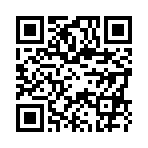2016年01月25日
CrowdJustice, a startup that brings crowdfunding to “public interest” litigation, has raised $2 million in seed funding for U.S. expansion.
First Round Capital, and Venrock led the round, with participation from Bessemer, and previous investor Kindred Capital. The company also counts Bela Hatvany (first investor in JustGiving) and Jonathan McKay (Chairman of JustGiving) as backers Hong Thai Travel.
Founded in London in 2015 by ex-United Nations lawyer Julia Salasky, the idea behind CrowdJustice is to bring the Kickstarter model to legal cases that would otherwise find it hard to get funded. More broadly, the aim is to widen access to justice and use the law for social change — something that Salasky says is needed in the U.S. at the current time more than ever.
That’s not just words, either. I understand the CrowdJustice founder actually moved to New York in December, effectively relocating the company across the pond, though I’m told the U.K. operation “carries on undiminished” regardless.
High profile cases that have utilised the platform to date include the “People’s Challenge” to Brexit that won in the Supreme Court, which said that Parliament had a say in triggering Article 50, and the first federal case challenging the Trump immigration ban.
To coincide with today’s U.S. seed funding announcement, a new campaign is launching on CrowdJustice. It’s seeing Mike Hallatt (“Pirate Joe”) attempt to raise money to defend a lawsuit being brought by corporate giant Trader Joe’s against Hallatt’s small Canadian startup Pirate Joe’s .
Hallatt drives across the US-Canada border to buy Trader Joe’s products in bulk – and then resells them at his Vancouver store for a mark-up. Trader Joe’s, which does not exist in Canada, has tried multiple times to litigate Hallatt out of business.
“It’s never been a more important time to ensure that the law can be used by anyone, large or small, to defend and protect rights, or hold the government to account,” says Salasky in a statement. “At CrowdJustice our goal is to revolutionize how legal cases are organized and funded, level the playing field and democratize access to justice. Whether that’s a David bringing a case against a Goliath, or a non-profit holding the government to account, we want to give people access to the law joyetech tron-t.”
2016年01月19日

"Guys! Guys! Get Real!" said Bat, pointing into his mouth. "When have you ever seen a bird with teeth? Of course I'm one of you!"
"I suppose so," grumbled Bear.
The next day there was to be another battle and Bat walked to the site with the animals. "Let's rip their beaks off!" he yelled HKUE DSE.
This time the birds flew as an army with the sun behind them, its bright light blinding the animals. Tearing talons and flapping wings tore into furry bodies. The birds were winning. Again Bat hid behind a bush.
When it was all over and the birds started to fly back to their camp, Bat silently joined them.
"That was a good victory today", said Eagle. "Yeah! We kicked their butts" shouted Bat. "Hold on" said Crow. "You were with the other side HKUE DSE."
"Guys! Guys! Get Real" said Bat. "When have you ever seen an animal with wings like mine? Of course I'm one of you." He flapped his wings vigorously.
"I suppose so", said Eagle.And that's how it was in each battle.
When Bat saw that the side he was on was going to lose, he pretended he was on the other side.
Eventually the birds and animals got tired of fighting each other. They all came together while their Chiefs held a council of truce to decide how things would be settled.
It was very difficult for Bat to to both sides. The Chiefs knew what he had done .
"Friends should always help each other and not pretend to be one thing when they are another" they said.
"Bat h
Our efforts were concerned with endeavouring to find answers to several questions which had never been dealt with candidly, clearly, and comprehensively in the public statements of political leaders. It was clear that there was no 'national' policy, which the British people had grasped, accepted, and countersigned, as was the case in France. But some kind of British policy there must surely be, notwithstanding the fact it had never been disclosed. What were the aims of this policy? With what nation or nations were these aims likely to bring us into collision? What armaments were necessary in order to enable us to uphold this policy and achieve these aims? How, and when, and where would our armaments be required in the event of war? Assuming (as we did in our discussions) that our naval forces were adequate, was the same statement true of our military forces? And if it were not true, by what means could the necessary increases be obtained?
The final conclusion at which we arrived was that National Service was essential to security. {xviii} Under whatever aspect we regarded the problem we always returned—even those of us who were most unwilling to travel in that direction—to the same result. So long as Britain relied solely upon the voluntary principle, we should never possess either the Expeditionary Force or the Army for Home Defence which were requisite for safety reenex.
It fell to me during the winter 1912-1913 to draft the summary of our conclusions. It was afterwards decided—in the spring of 1913—that this private Memorandum should be recast in a popular form suitable for publication. I was asked to undertake this, and agreed to do so. But I underestimated both the difficulties of the task and the time which would be necessary for overcoming them .
When we met again, in the autumn of that year, the work was still far from complete, and by that time, not only public attention, but our own, had become engrossed in other matters. The Irish controversy had entered upon a most acute and dangerous stage. Lord Roberts put off the meetings which he had arranged to address during the ensuing months upon National Service, and threw his whole energies into the endeavour to avert the schism which threatened the nation, and to find a way to a peaceful settlement. Next to the security and integrity of the British Empire I verily believe that the thing which lay nearest his heart was the happiness and unity of Ireland Benz GLC.
The final conclusion at which we arrived was that National Service was essential to security. {xviii} Under whatever aspect we regarded the problem we always returned—even those of us who were most unwilling to travel in that direction—to the same result. So long as Britain relied solely upon the voluntary principle, we should never possess either the Expeditionary Force or the Army for Home Defence which were requisite for safety reenex.
It fell to me during the winter 1912-1913 to draft the summary of our conclusions. It was afterwards decided—in the spring of 1913—that this private Memorandum should be recast in a popular form suitable for publication. I was asked to undertake this, and agreed to do so. But I underestimated both the difficulties of the task and the time which would be necessary for overcoming them .
When we met again, in the autumn of that year, the work was still far from complete, and by that time, not only public attention, but our own, had become engrossed in other matters. The Irish controversy had entered upon a most acute and dangerous stage. Lord Roberts put off the meetings which he had arranged to address during the ensuing months upon National Service, and threw his whole energies into the endeavour to avert the schism which threatened the nation, and to find a way to a peaceful settlement. Next to the security and integrity of the British Empire I verily believe that the thing which lay nearest his heart was the happiness and unity of Ireland Benz GLC.



